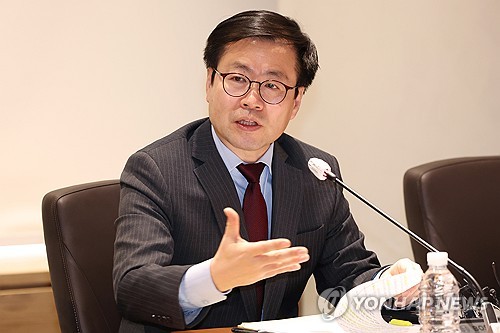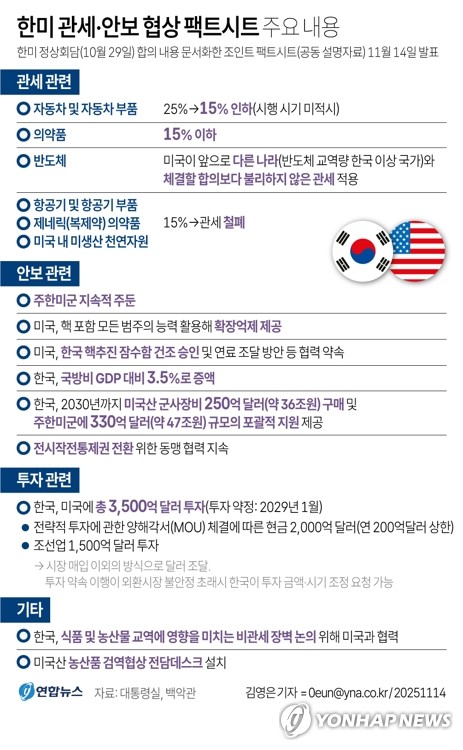(Seoul=Yonhap Infomax) Su Jin Yoo –
Yeo Han-koo, South Korea's Trade Minister at the Ministry of Trade, Industry and Energy, stated that there is "room for South Korea and Taiwan to secure the most favorable treatment through cooperation" regarding semiconductor tariffs.
Appearing on MBC Radio's 'Kim Jong-bae's Focus' on the morning of the 24th, Yeo said, "The fact sheet for the Korea-US tariff negotiations specifies that 'treatment similar to Taiwan' will be applied to semiconductors, but in reality, Taiwan is also currently negotiating with the United States." He emphasized the importance of cooperation between the two countries, noting that a positive outcome for Taiwan in its negotiations with the US would also benefit South Korea.

Previously, the United States stated in the fact sheet that it would "offer terms no less favorable than those agreed with countries whose semiconductor trade volume exceeds that of South Korea." This has been widely interpreted as referring primarily to Taiwan, South Korea's main competitor in the sector. Yeo commented, "The structure of the semiconductor industry does not change dramatically in just one or two years. Our closest and largest competitor in semiconductors is Taiwan."
US President Donald Trump threatened in August to impose tariffs of around 100% on semiconductors, while encouraging investment by promising exemptions for companies building or pledging to build semiconductor plants in the United States. However, more than three months have passed without the imposition of such tariffs.
Multiple foreign media outlets recently reported that Trump administration officials have indicated to both government and private sector stakeholders that semiconductor tariffs may not be imposed immediately. Analysts interpret this as an effort by the US to avoid provoking China, especially after President Trump and Chinese President Xi Jinping agreed last month to suspend mutual retaliatory tariffs, signaling a truce in the US-China trade war. Concerns over inflation ahead of the year-end shopping season have also been cited as a factor.

On the same day, Yeo left open the possibility of changes in the recently concluded Korea-US tariff agreement, which was reached on the 7th. "The Trump administration is characterized by its high degree of uncertainty, so it is difficult to make definitive statements," he said, adding, "I believe there could be significant changes depending on the US political situation over the next three years."
He further assessed, "In fact, the inauguration of the first Trump administration in 2017 marked a turning point for free trade. Regardless of which government takes office in the US, it will be difficult to return to the previous free trade regime." Yeo noted, "There were expectations that the Biden administration would return to free trade, but it continued Trump-era steel tariffs and strengthened export controls and economic security measures. I expect that, regardless of the US administration three years from now, the trend of protecting domestic industries and integrating security and economic policy will largely continue."
sjyoo@yna.co.kr
(End)
Copyright © Yonhap Infomax Unauthorized reproduction and redistribution prohibited.

